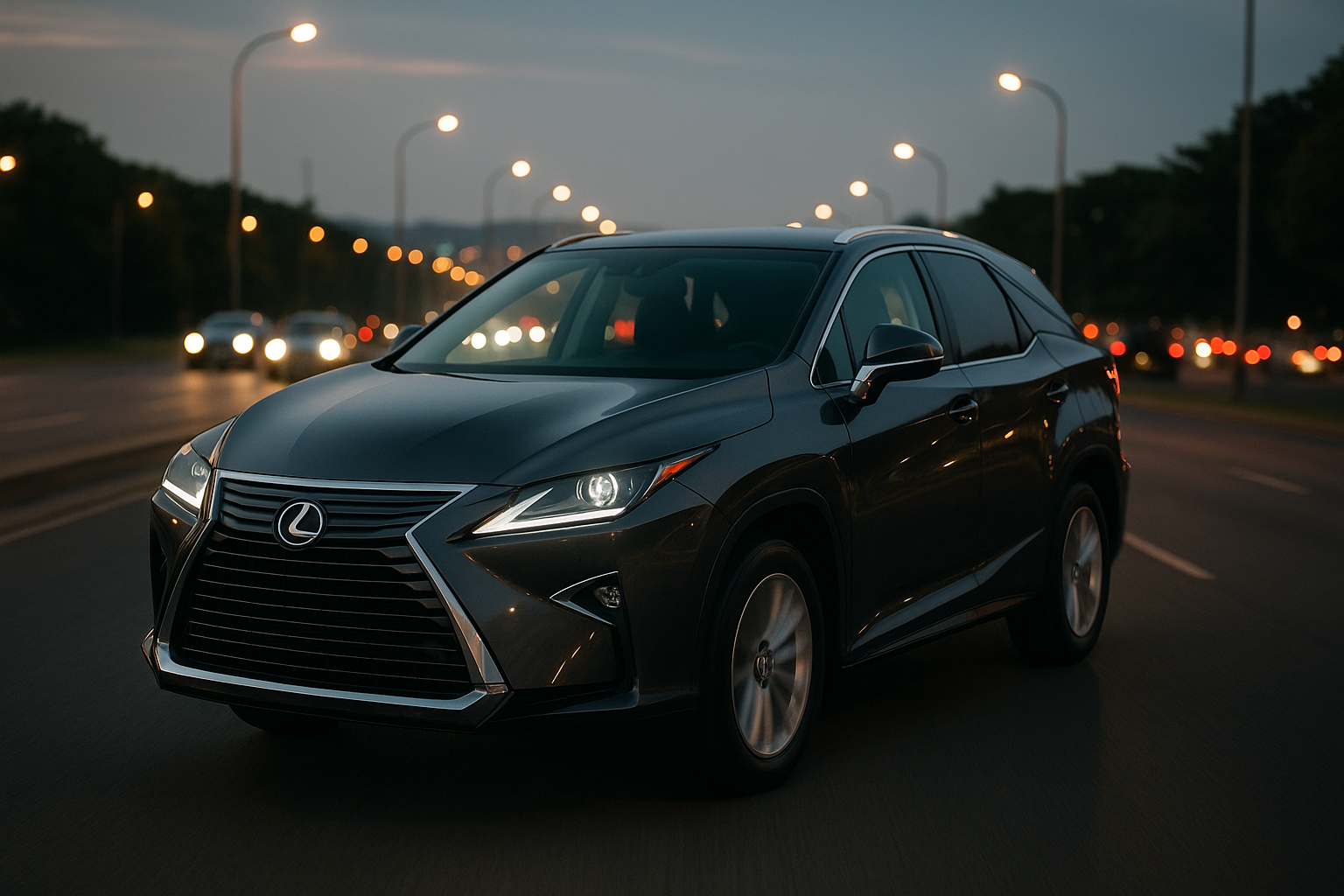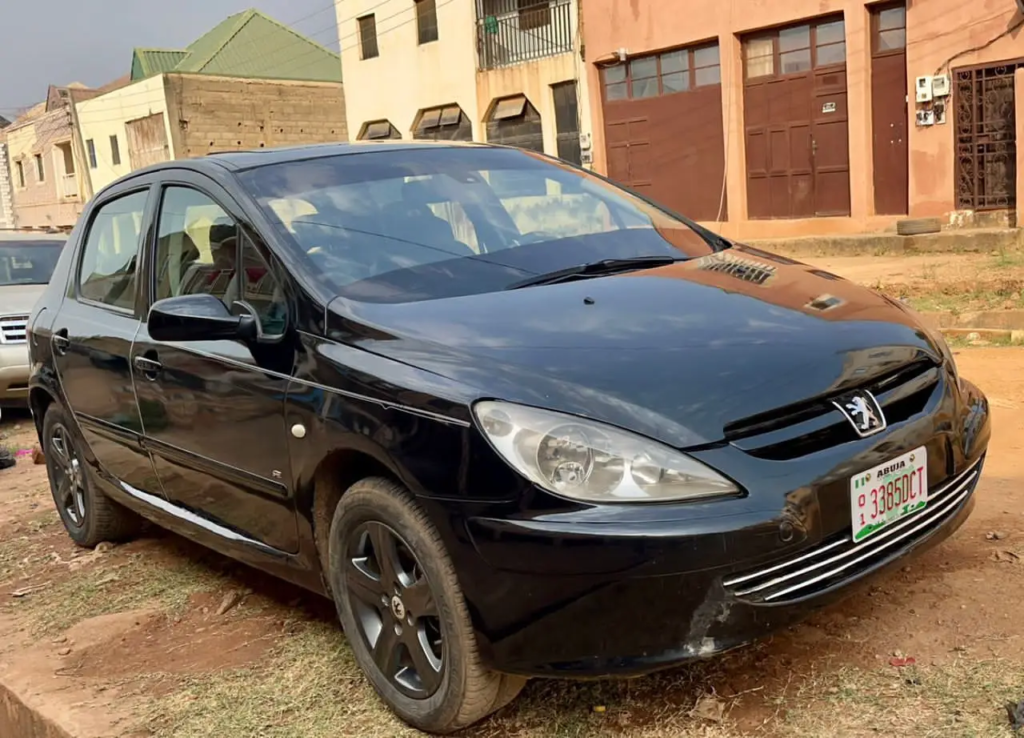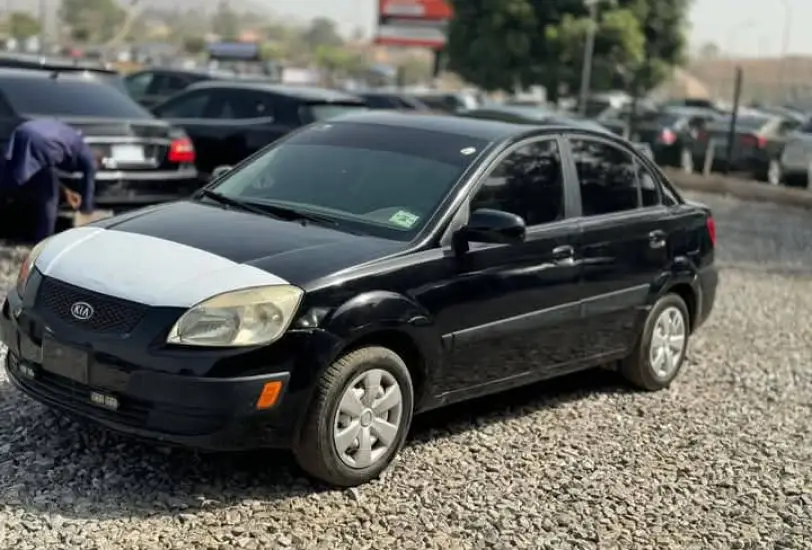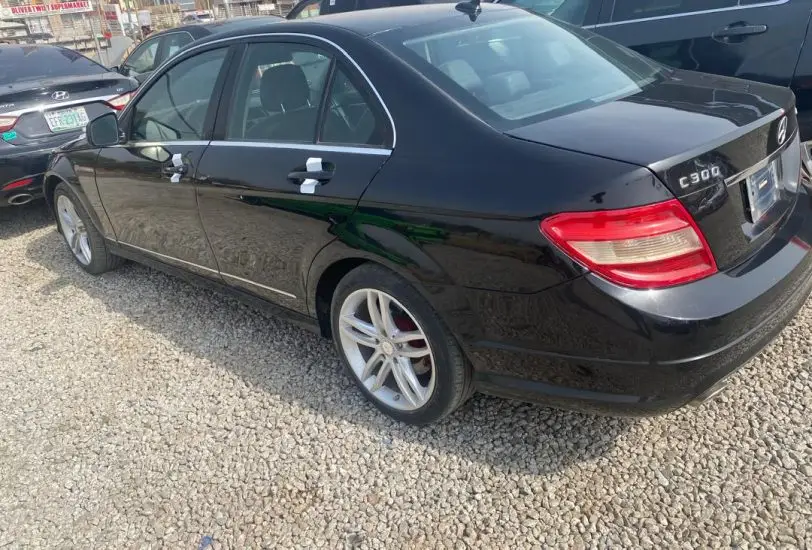Oh, the Nigerian hussle! Driving down the busy streets of Abuja in your car, city lights shine on the front of the car, wind blowing in your hair (or more likely, the AC on full due to our hot weather!). The feel of being free, of making it, can’t be missed.
But let’s keep it real, between the dream and what is real there’s often a road full of tight money budget, hard choices, and the constant worry of trouble. In Nigeria’s capital city of Abuja, owning a car is a big deal; it shows you are moving up the social ladder and it’s also a must for daily travel. But, this dream often hits hard facts like rising prices and unstable incomes, making good value key.
If you’re nodding your head, thinking how to make this dream come true without emptying your wallet or getting tricked, then you’re in the right spot. See this as your go-to help, the only guide you need to buying Tokunbo cars in Abuja the right way.
We will help you understand each step – from what “Tokunbo” really means to finally getting those keys and, just as key, the right papers in your hand. We will touch on all you need to know, and if you want to learn more, we will have links to more info as well.
What Are Tokunbo Cars? The Nigerian Gold Standard
First, let’s clear up the words, because in the car world here, each word means something big. A “used” car, or “Tokunbo” from the Yoruba word for “from overseas,” means a car from another place brought here to use.
This is different from a “locally used”, or “Nigerian Used” car, which has been driven here by at least one person, and a “Brand new” car, which is fresh from the maker with no mileage (zero mileage).
Knowing the difference between these three is step one to a wise money choice. Each type has its good and bad sides.
| Feature | Tokunbo (Foreign Used) | Nigerian Used (Locally Used) | Brand New |
| Price | More affordable than new; may be higher than some Nigerian Used due to import costs & duties | Generally most affordable upfront | Highest cost |
| Condition | Potentially better; often lower mileage; history of better maintenance abroad | Highly variable, a “lottery”; potential for many hidden issues; condition reflects Nigerian road use | Excellent; latest technology; no prior wear and tear |
| Maintenance History | Sometimes available (e.g., CarFax for US cars); often better maintained initially | Often unknown, unreliable, or completely absent | Full history from day one; all maintenance under warranty initially |
| Warranty | Rarely, unless from specific reputable dealers or platforms like Autokunbo.com (which mentions a “quality guarantee” in its CTA) | Extremely rare, almost non-existent | Full manufacturer warranty |
| Risks | Hidden damage from previous foreign use (accidents, flood), import-related issues (e.g., improper customs clearance), scam potential if not diligent | High risk of undisclosed mechanical/electrical faults, tampered mileage, extensive wear from local conditions, poor repair history | Minimal, primarily financial risk of rapid depreciation |
| Pros | Good value for money; potentially higher quality and lower mileage for the price compared to Nigerian Used | Lowest initial purchase cost; wider availability at lower price points | Peace of mind; latest features & safety; full warranty; no prior issues |
| Cons | Import duties and clearing costs add to price; still a used car needing thorough inspection; risk of “salvaged” or flood-damaged vehicles if not careful | Highest risk of major problems; condition is a gamble; often requires immediate and ongoing repairs | Highest upfront cost; significant immediate depreciation |
| Best For | Value-conscious buyers seeking a balance of quality, reliability, and affordability; willing to do due diligence. | Buyers on a very tight budget prepared for higher risk and potential repair costs; or those with trusted mechanic connections. | Buyers prioritizing maximum reliability, latest technology, full warranty, and who have a larger budget. |
A Tokunbo car’s past history can show a lot. A 2014 Toyota Camry from Texas, for instance, may have never seen a road with salt, which makes rust under the car less likely. A similar car from Germany could have better build and be ready for high speeds, while one from Canada might come with a “winter pack” that has things like warm seats and a strong heat system.
For a full breakdown of the pros and cons, read our detailed guide:The Pros & Cons of Buying Tokunbo Cars
Where to Find Verified Tokunbo Cars for Sale in Abuja
The search for a good car in Abuja can lead you down many roads. It helps a lot to know the area well when you look.
The Modern Way: Trusted Online Car Dealerships
The best and fastest way to buy a car in 2025 is by using a well-known online dealerships like Autokunbo.com. This way is made to cut down the risks you find in the old ways of buying. We give you a list of cars that we checked well before we even put them up for sale. You can see full check reports online, clear no-bargain prices, short warranties on main parts, and a safe way to pay. It’s the new way to buy for those who want to be sure and clear about everything.
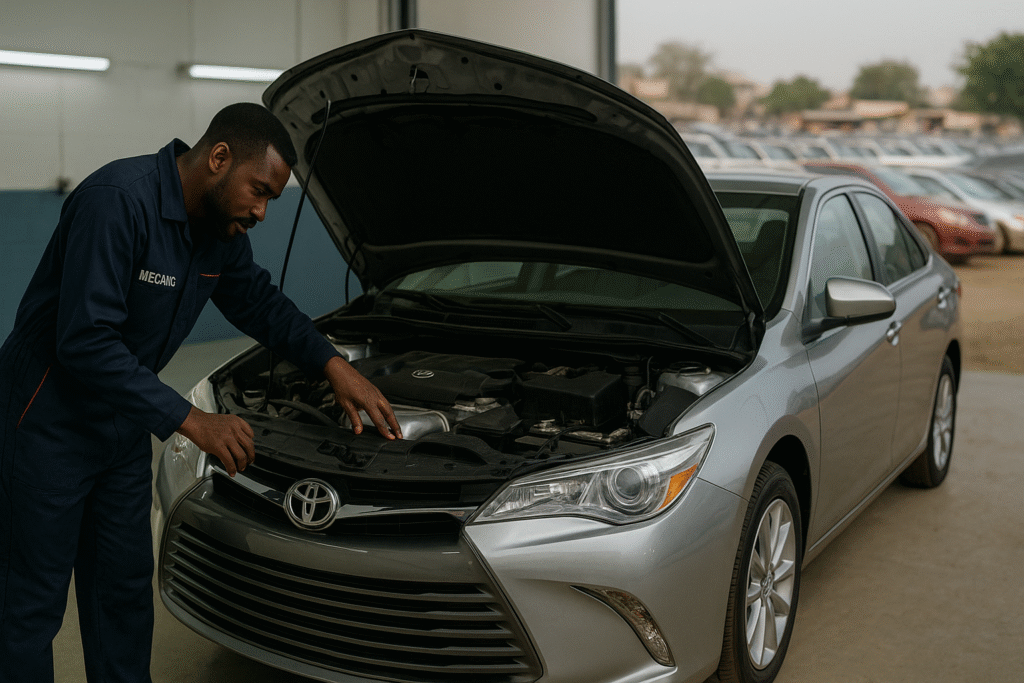
The Wild West: Online Marketplaces
Sites like Jiji and Cheki are like big, open car markets online. There are a lot of cars, and you can find everything from very good cars sold by the person who owned them to sketchy offers from many sellers. You might find a good price, but it’s very risky. These sites do not check much. You may find wrong ads, photoshopped photos, and full-on tricks often. If you go this way, you must be very careful and think every car is bad unless it’s inspected well by someone or a mechanic you trust.
Walking the Streets: Abuja’s Physical Car Lots
For a more in-depth look into where to find verified Tokunbo Cars for sale in Abuja, check out complete guide: Where to Find Tokunbo Cars for Sale in Abuja: The Ultimate 2025 Guide
For those who need to see and touch the car before they pick, going around the car lots in Abuja is a known way. Key spots from our research include big lots near Apo Mechanic Village, auto dealers along Kubwa Expressway, and groups in Garki and Wuse.
Going there can be a lot; you might hear “Oga, come look this one!” from many eager sellers. The good side is seeing many cars at once. The bad side is the push and how hard it is to tell a really good car from one that’s just fixed up to sell fast.
Never go by yourself — always bring a good mechanic you trust.
A Real Look at Tokunbo Car Prices in 2025
How much you can spend is the basis of your car-buying trip. Before you start looking, know what Tokunbo cars really cost. Prices show what the market and other car industry factors are doing. From our deep look at the market, here are the price ranges we see for good, checked Tokunbo cars in Abuja.
| Car Model | Popular Model Years | Estimated Price Range (Naira) |
| Toyota Camry (“Big Daddy”) | 2002-2006 | ₦3,500,000 – ₦6,000,000+ |
| Toyota Camry (“Muscle”) | 2007-2009 | ₦4,500,000 – ₦7,500,000+ |
| Toyota Camry | 2010-2012 | ₦7,000,000 – ₦12,500,000+ |
| Toyota Camry | 2013-2015 | ₦10,000,000 – ₦18,000,000+ |
| Honda Accord (“EOD”) | 2003-2007 | ₦3,500,000 – ₦6,500,000+ |
| Honda Accord | 2008-2012 | ₦5,500,000 – ₦10,500,000+ |
| Honda Accord | 2013-2015 | ₦9,000,000 – ₦16,000,000+ |
| Lexus RX 330/350 | 2004-2006 (RX 330) | ₦6,500,000 – ₦10,000,000+ |
| Lexus RX 350 | 2007-2009 | ₦9,000,000 – ₦16,500,000+ |
| Lexus RX 350 | 2010-2012 | ₦15,000,000 – ₦24,000,000+ |
| Lexus RX 350 | 2013-2015 | ₦19,000,000 – ₦33,000,000+ |
| Toyota Highlander | 2007-2010 | ₦9,000,000 – ₦15,000,000+ |
| Toyota Highlander | 2011-2013 | ₦14,000,000 – ₦22,000,000+ |
| Toyota Corolla | 2008-2012 | ₦6,000,000 – ₦11,000,000+ |
The “tag price” is just the start. The final price is determined by:
- Model Year & Trim Level: A 2015 Camry XLE with a V6 engine costs more than a 2014 Camry LE with a smaller, 4-cylinder one.
- Mileage: While odometers can be altered, , a car with really low mileage will cost more if its history is real.
- Vehicle Condition: The best car has no crash past (first body). Any big fixes, even done well, drop the car value.
- Customs Duty: The price to bring in and clear a car through Nigerian ports is big and is part of the final price. A car with all its custom duty paid and verified will cost a lot more than one brought in another way.
- The Exchange Rate: This is the big force in the market. Since these cars are bought in dollars, the current rate for Dollar-to-Naira influences the cost to bring them and what they sell for in the end.
For a deeper look at the market trends, use our Complete Guide to Tokunbo Car Prices
Choosing the Right Car Model & Steering Clear of “Problem Cars“
The tough roads of Nigeria, from potholes to go-slow traffic, demand cars that last. This is why brands like Toyota, Honda, and Lexus are top picks. They’re known for being reliable, fuel efficient, and easy to fix due to their widely available, cheap spare parts. Most buyers find these brands make the most sense.
Yet, a good brand name isn’t all you need. You need to know about the special issues that come with the car you want. This turns you from a hopeful buyer into a smart one.
Toyota Camry & Corolla
- Why They’re Popular: They’re famous for being reliable and holding their resale value. They are the usual choice for a reason: they work well, feel good to ride in, and every mechanic in Nigeria can fix them.
- Best Model Years to Buy: For the Corolla, the 2009-2013 models are great value. For the Camry, the 2012-2017 cars mix modern features with trusted reliability.
- Common Issues to keep an eye on: Some older Toyota engines from the late 2000s might use too much oil. Make sure to check the oil and look for blue smoke from the exhaust pipe.
Honda Accord
- Why It’s Popular: For those wanting a bit more fun and a sporty touch without losing reliability, the Accord is perfect..
- Best Model Years to Buy: The 2013-2017 models are well-loved for their style and tech.
- Common Issues to keep an eye on: Some old V6 models had iffy automatic gears. Be very focused on how the car changes gears when you try it out. Any odd delays, rough shifts, or “slipping” are bad signs.
Lexus RX 350 & ES 350
- Why They’re Popular: Called the “king of Nigerian luxury SUVs“,they mix a fancy, luxury feel with Toyota’s trusted reliability, giving the best of both.
- Best Model Years to Buy: The 2010-2015 RX 350 models are a hot choice for a family-sized luxury SUV.
- Common Issues to keep an eye on: Any luxury car can have pricey fixes like shock and strut replacements. Listen for odd noises when you drive over bumps during inspection.
See our full list of recommended cars in Most Popular Tokunbo Car Models in Abuja. Before you choose, , protect yourself by reading our important guide on Common Problems in Popular Tokunbo Models.
The Must-Do Step: Your Vehicle Inspection Masterclass
I need to make this very clear: always, always check a car before buying it. This rule is key. It’s the most important thing you can do to keep your money safe and avoid big problems later.
Here’s how to inspect a car like an expert, even if you’re not one.
The Exterior Body Check
- Panel Gaps: Walk around the whole car. Look at the spaces between the doors, the hood, the fenders, and the trunk. Are these gaps small and even? Big or uneven gaps can mean the car was in a wreck and fixed badly.
- Paint & Finish: Check the paint in bright sunlight. Bend down and look at the side of the car from front to back. A good paint job should look smooth and shiny like a mirror. If it looks wavy or like an orange skin, it might have been painted again. Look for extra paint on the window and light seals.
- Rust: Rust is very bad for cars, it is just like cancer for cars. Get down and look at the bottom of the doors, the wheel wells, and the frame under the car. Use your phone light. Check for paint bubbles or rusty spots.
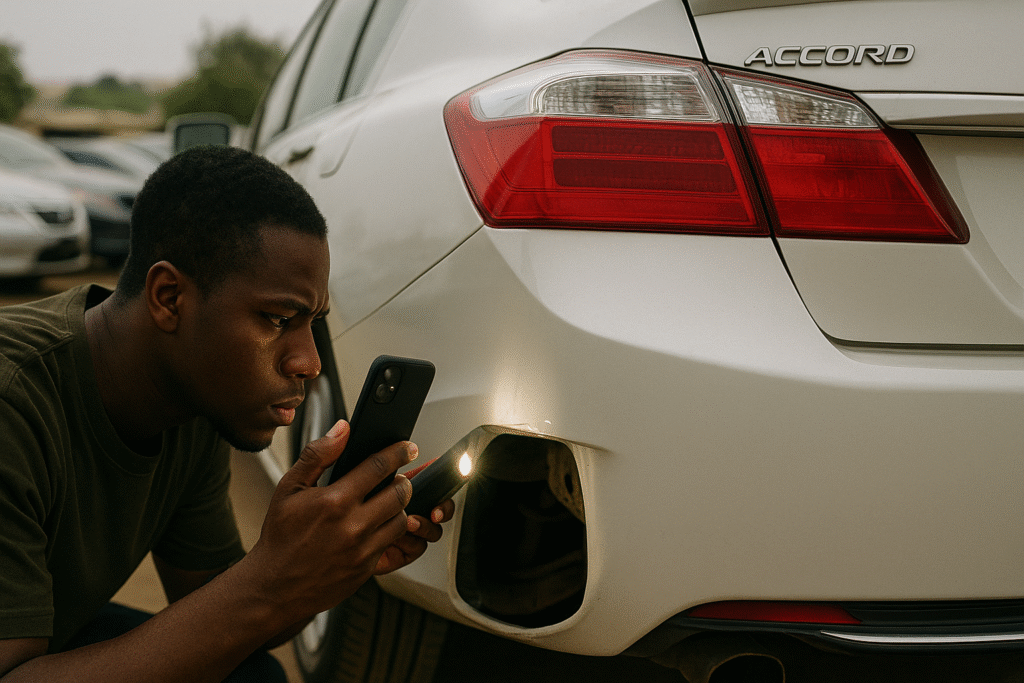
Look Inside The Car
- The Smell Test: Your nose can tell you a lot. A bad smell that won’t go away could mean the car was in a flood. Don’t trust a seller who says it just needs to be aired out.
- Check Electronics: Test all the electronics. Check the windows, locks, radio, screen, and very important, the Air Conditioning. Turn the AC all the way cold and the fan all the way high. It should blow cold air fast. An AC that “just needs gas” could really need expensive repairs.
- Signs of Flood Damage: Check for rust on the bolts under the seats. Lift the mats. Look for wet spots or dirt under the carpet.
Under the Hood: The Engine Area
- Fluid Checks: Ask the seller to start with a cold engine. A warm engine can hide problems. Check the oil stick. Is the oil clean and light in color, or is it dirty and thick? Is it creamy? That could mean a big problem with the head gasket. Check the transmission fluid; it should be red and not smell burned.
- Listen to the Engine: Have the seller start the car while you listen with the hood open. It should hum smoothly. Any loud noises mean trouble and need an expert to check.
Take a Test Drive
- Transmission:When you speed up, does the car shift smooth and fast, or does it jerk and hesitate?
- Brakes: On a safe road, speed up a little and then brake hard. Does the car stop straight or pull to one side? Do the brakes feel firm or weak?
- Suspension: Drive over some small potholes on purpose. Listen for any bad sounds. A good car should feel strong and not shaky over bumps.
If this all seems all hard, think about Using Professional Car Inspection Services in Abuja.
Making it Official: The Ultimate Guide to Car Documents in Nigeria
The deal isn’t done until the papers are right and in your name. The papers need to be perfect and just as important as the car working well.
- Customs Papers (Most Important of All Documents): The top document you need shows the car customs duty is paid in full. Always ask for the original papers. You can check these with the VIN on the Nigeria Customs Service website. A car with bad papers could be taken at any time, and you would lose your money.
- Other Import Documents: Besides the customs papers, ask for the Bill of Lading and other papers that show where the car came from.
- Vehicle Registration & Number Plates: Once you buy it, you must register the car in your name. This involves the VIO for a check and the FRSC for your plates and ownership proof. The costs and steps for this are on the FCT’s DRTS website.
- Insurance: To drive legally in Nigeria, you need at least Third-Party Insurance. But it’s smart to get Comprehensive Insurance to guard against theft and damage of a valuable asset lika a Tokunbo car.
For more details, explore our guides on Customs Duty and Port Clearing, Car Insurance in Nigeria: The Ultimate Guide and Understanding Nigerian Number Plates & Registration.
Key Takeaways
- Tokunbo is the Top Pick & Offers the Best Value: For most in Nigeria, the right Tokunbo car is the best deal. It’s in a better state and has more features than a used Nigerian car, yet costs way less than a new one.
- Prioritize Trusted Dealers: Even though many cars are for sale in online marketplaces, the safest buy is from a trusted dealer. They check the car well and give you a short warranty. This step cuts out most risks.
- Inspect, Inspect, Inspect: This is the most important rule. Never get a car if you haven’t checked it inside and out with a mechanic you trust. A car might look good but still have big hidden problems.
- Verify Customs Papers Above All Else:You must have the car’s right customs duty papers. Check the car’s VIN on the Nigeria Customs Service site before you pay. Do not skip this step.
- Budget Beyond the Sticker Price: Agreeing on the price is just the start. Always add 10-15% more for other costs like the car’s papers, insurance, new tyres, and fluids after buying it.
Conclusion: Start Finding the Best Car Right Here
Getting a Tokunbo car (foreign used car) in Abuja is a smart move. It’s a path that needs care, good info, and a true friend. With this guide, you are steps ahead of most buyers and ready to pick right, steer clear of big troubles, and drive a great car you’ll love.
It might look hard, but at Autokunbo.com, we make it easy. We check every car well, make sure all papers are okay, and we promise good quality. We take on the tough parts, so you can just enjoy the drive.
Begin your safe and clear car-buying trip with a friend you trust. Take a look at our fully-inspected Tokunbo cars today!


